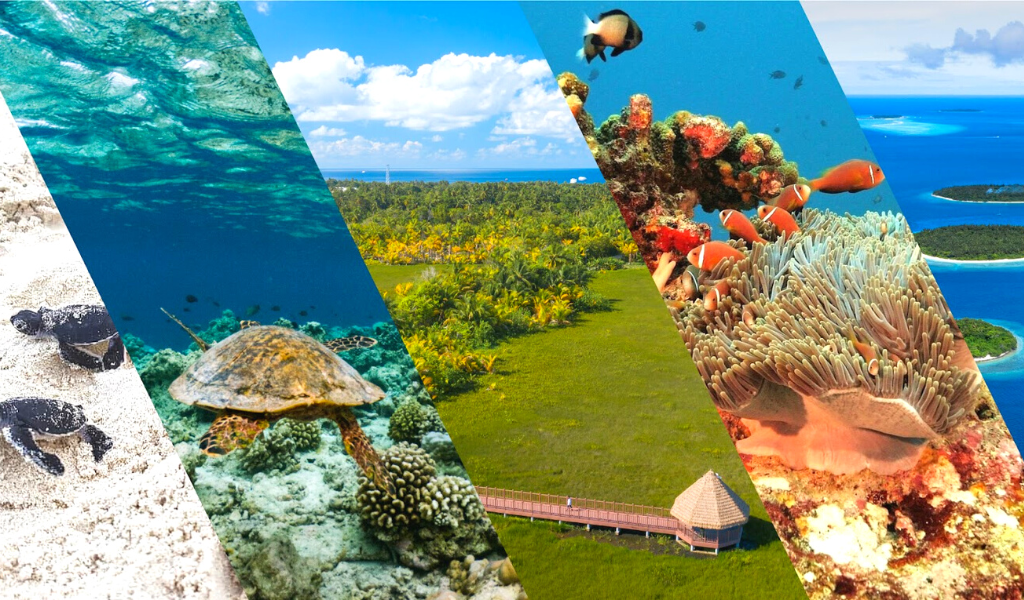

Maldives - Uniting as a Whole in Sustainable Responses to the Climate Crisis
Wednesday 20th of July 2022
Recently, the concept of a clear understanding of the word has become clouded as the term sustainability has come to be synonymous with everything from environmental conservation to sound business models. Three main measurable dimensions make up sustainable development, whose long-term effects are desired by any community or entity. The environment, society, and economy are three interconnected dimensions that the Maldives is constantly exploring, as well as what we are doing to contribute to the Maldives.
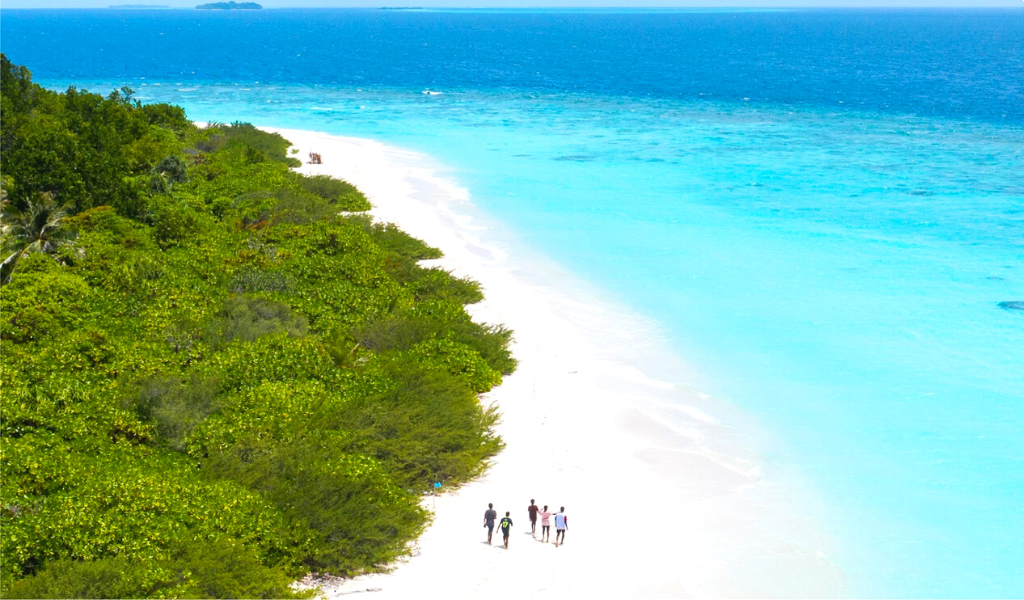
Environment + Economy = Society
The three facets of sustainability are distinct, but they are also intricately linked in a way that makes them impossible to separate. The sustainability of society and the protection of the environment for future generations' use and benefit would be the most crucial factors for any nation. The long-term advantages that adopting sustainable development brings to a society or community are related to societal sustainability.
The pledge of President Ibrahim Mohamed Solih of Dignified Living for All Maldivians fully embraces the societal dimensions of sustainable development, which include livelihoods, employment, food, and water security. The beauty of our archipelago is our most important natural resource, though tourism is what makes up the majority of our country's GDP. Thus, our society's survival is inextricably linked to both the economic and environmental spheres.
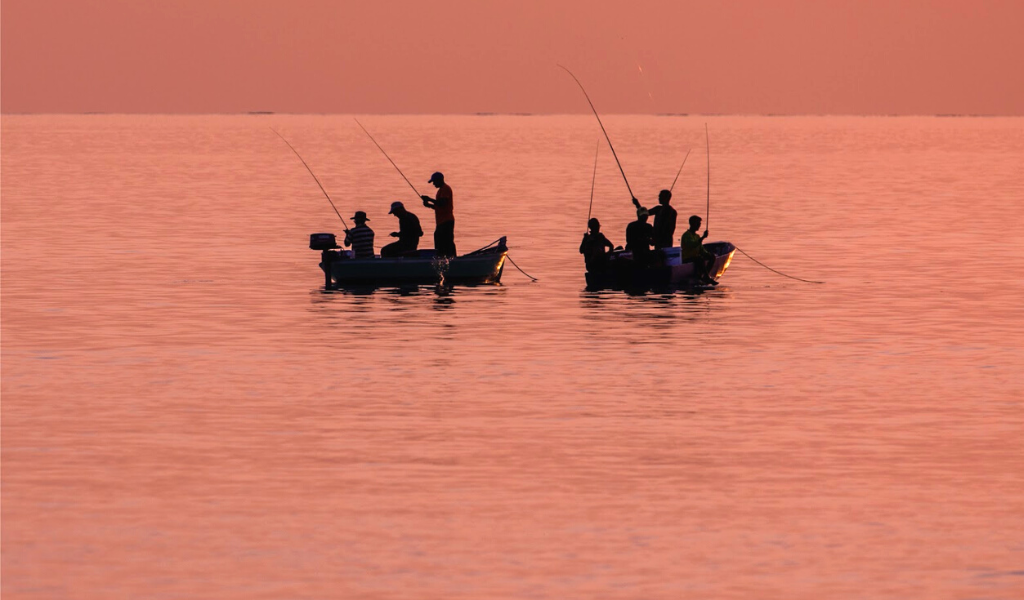
Even though tourism may be our country's main industry, fishing continues to be the Maldives' main source of income. In the Maldives, fishing has always been and continues to be a significant source of income for many inhabitants of different island settlements. The Maldives are a global leader in pole-and-line tuna fishing, and the only permitted method of fishing there is one-by-one fishing, which is the most environmentally friendly and sustainable one. The Maldivian fishing community frequently consists of families, with one or more family members staying at home to clean, smoke, and prepare the catch for sale or consumption. Maldivian tuna and tuna products are well-known worldwide for the best reasons: they are fresh, organic, and clearly from ethical sources.
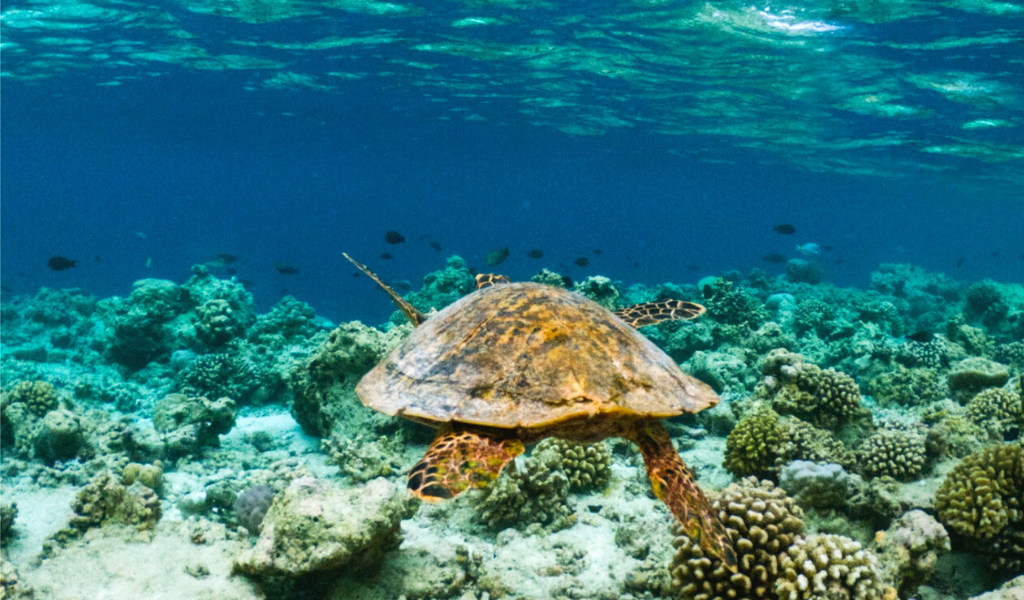
Similar to this, the Maldives' tourism industry has embraced sustainability wholeheartedly. According to the UNWTO, sustainable tourism gives local communities the ability to use tourism as a source of income while still preserving their way of life and managing their natural resources sustainably. One-island-one-resorts, boutique hotels, stylish island inns, and even liveaboards have all embraced sustainable tourism in the Maldives. We are proud that all of our tourist facilities and institutions have banded together and responded to the call with a resounding YES - yes, we care about our environment, our nation, and our residents' livelihoods, and we will do everything we can to safeguard it for the future generations. Whether it be through coral conservation programs, erosion prevention, or simply raising awareness among tourists.
Actions to Conserve the Delicate Environment
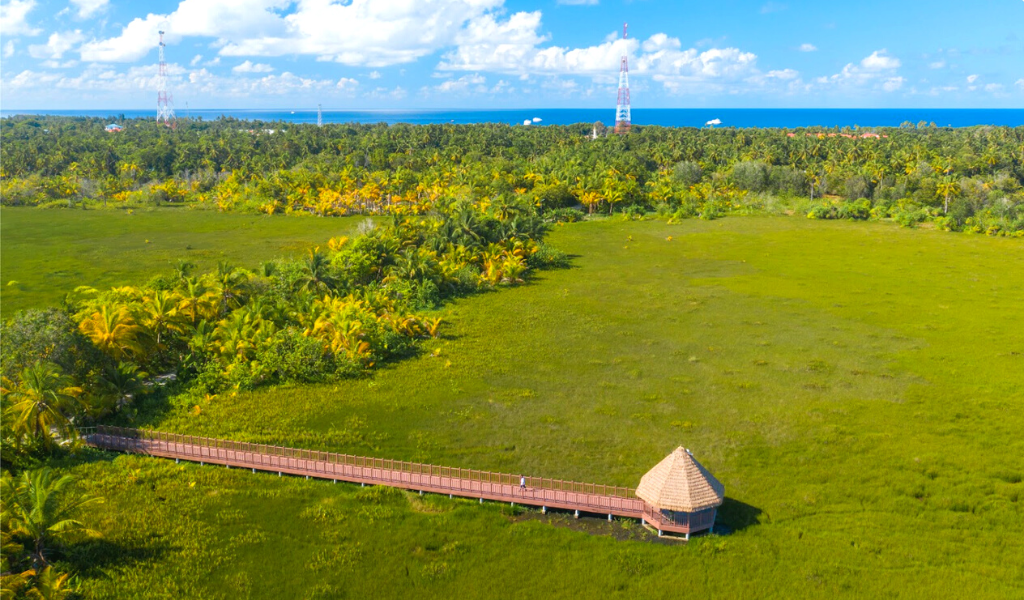
The Maldives are a prominent voice in climate activism on a global scale, speaking out against the harmful effects of the climate crisis. Each atoll will have at least one reef, one mangrove, and one uninhabited island protected by the Maldivian government. The Maldives tourism industry is doing its part to protect the environment and the Maldivian way of life by leading initiatives for the safety of SIDS and other vulnerable groups.
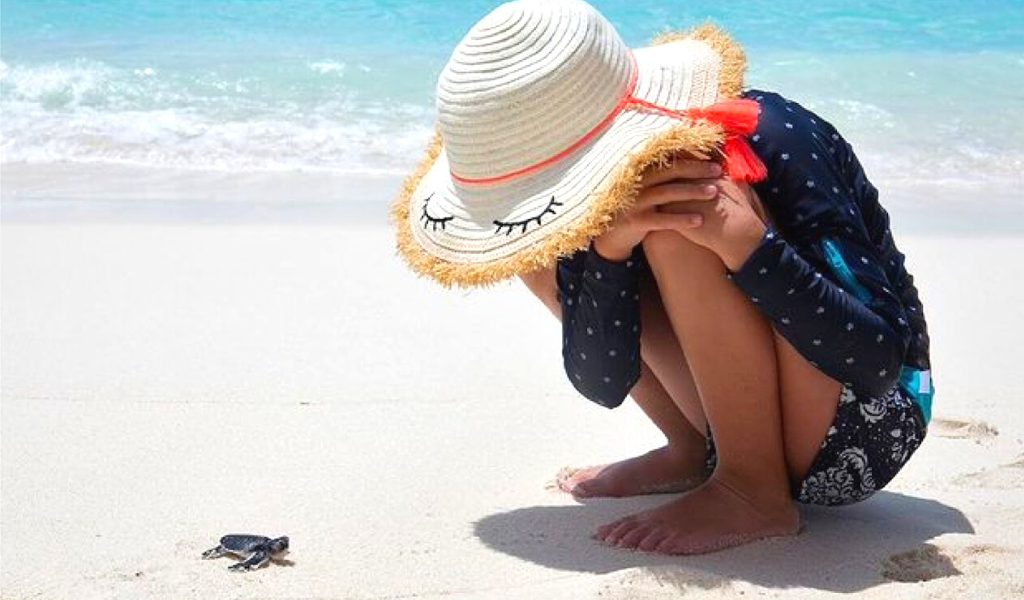
One of the biggest resort-based marine biology teams in the country, the Maldives Underwater Initiative (MUI) team, which collaborates to protect Laamu's marine environments, is made up of marine biologists from Six Senses Laamu as well as representatives from three partner NGOs: the Manta Trust, Blue Marine Foundation, and Olive Ridley Project.
Research that the MUI had gathered for years was presented in 2021 as proof that Laamu's marine environment required protection. After reviewing the information, Mission Blue designated Laamu Atoll as a Hope Spot in October 2021 in honor of the value of its marine ecosystems. Six Marine Protected Areas had been established in Laamu Atoll, the President announced two months later, in December 2021. This was the achievement the MUI team had been working towards for years. Hope Spots, such as Laamu Atoll, are exceptional areas that Mission Blue describes as being crucial to the health of the ocean.
A variety of activities are available for participants from the MUI team. The weekly reef clean, guided snorkeling on the house reef, seagrass meadows, and reefs throughout the atoll, dolphin cruises, kid's club activities, and scuba diving with a marine biologist are just a few of the activities available.
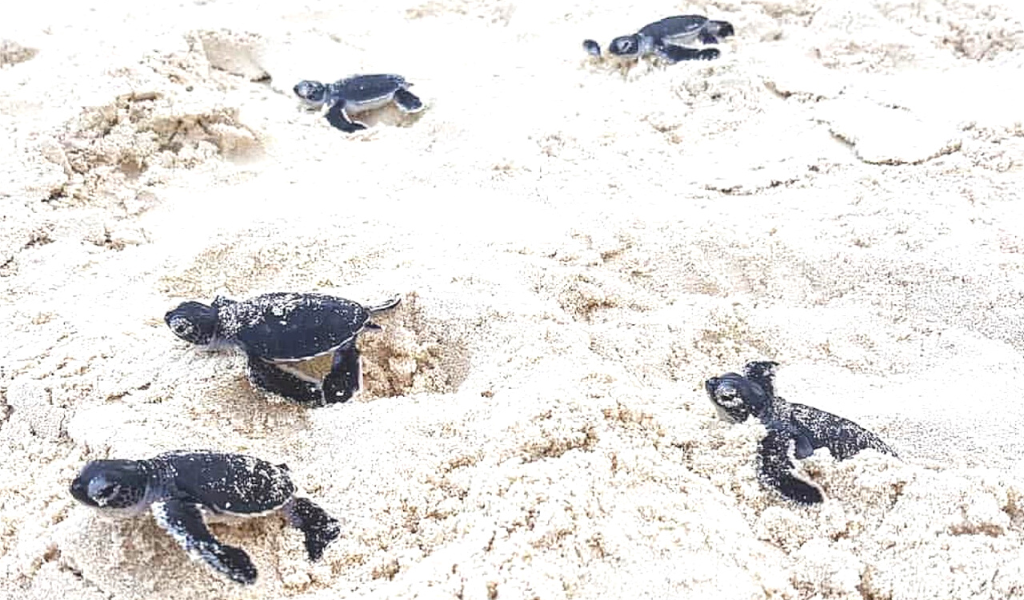
To avoid the use of single-use plastic water bottles, this property built an internal glass water bottling facility in 1998 when the resort first opened. They use techniques like recycling aluminum, breaking glass, and composting organic waste with enzymes. Additionally, they have a Chef Garden where edible organic herbs, bananas, and vegetables are grown. However, the resort is best known for being the location of the Olive Ridley Project's first Marine Turtle Rescue Center. Their goals include removing abandoned fishing nets, also referred to as "ghost nets," from the ocean, saving and treating injured sea turtles, recycling and reducing marine debris, and spreading awareness of the dangers of ghost nets and the precarious state of sea turtles worldwide.
The Maldives' first and only turtle rescue facility run by a veterinarian is the Marine Turtle Rescue Centre at Coco Palm Dhuni Kolhu. The center has 7 tanks that can house up to 8 turtle patients at once and is fully furnished with laboratory and surgical facilities.
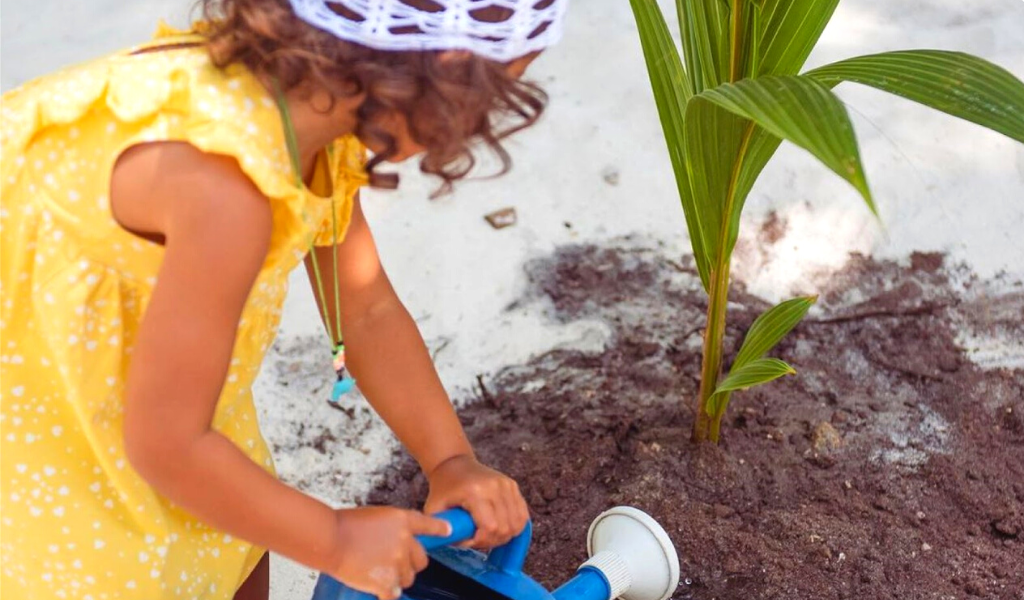
At Joali Being, in addition to several important waste management and sustainability practices, the resort also has some thoughtful community-based initiatives for the advantage of Raa Atoll, where the property is located, including a monthly training session on plastic-free living by the in-house Sustainability Manager. Through education, engagement, and donation programs, their outreach initiatives seek to bring people together in the fight against climate change, overfishing, and unsustainable development. Three times a year, community meetings are held where the voices of the residents of Raa Atoll are represented by representatives from the Raa Atoll Council, island councils, women's development committees, schools, police stations, and active local NGOs.
Among their programs are assistance with access to better medical care, community access to clean drinking water and sanitation, including the gift of water filters to every school and objectives to address the water crisis in households, as well as awareness campaigns and lessons about sustainable tourism.
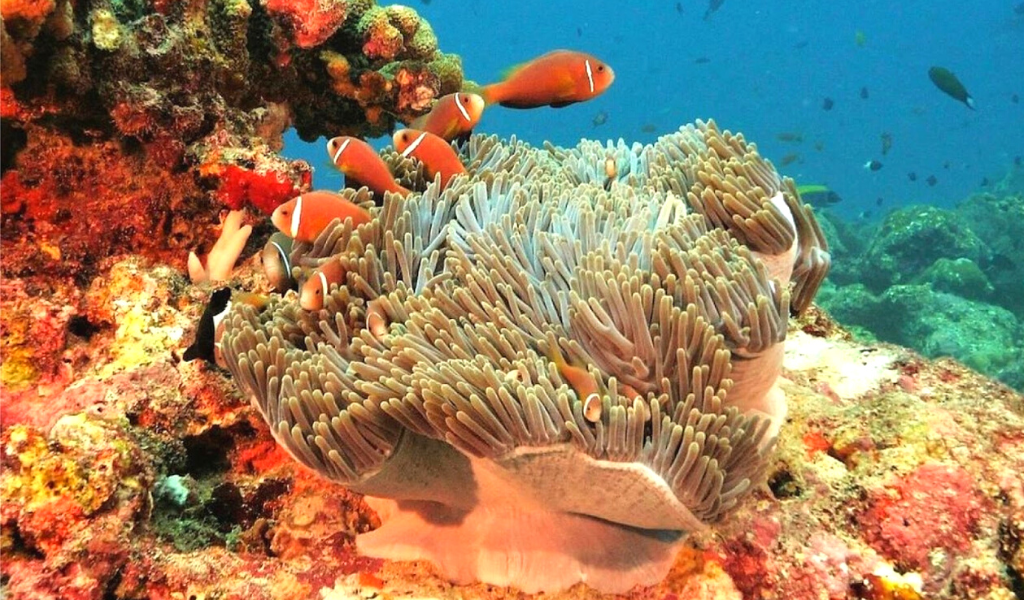
A group of knowledgeable marine biologists run the Marine Discovery Centre at Crossroads Maldives, where guests can participate in a variety of educational activities while living and learning about the ocean environment. The Maldives Discovery Centre is a distinctive cultural attraction with beautiful designs that highlight the charms of regional arts and crafts and support local artists. It also features a coral reef walk-through and an immersive marine conservation experience. It offers interactive activities like tuna-discovery scuba diving, snorkeling, coral nursery exploration, and marine conservation courses like the Junior Marine Curator and Reef Guardian Maldives. It also has a marine biology lab, coral propagation, a clownfish release program, and interactive activities like coral nursery exploration.
An on-site education center is available to involve kids in sustainability and conservation awareness topics while incorporating play and stories into the learning process to help foster an appreciation for the environment. Through activities such as craft classes that only use recycled materials, tours of the Maldives Discovery Centre and Marine Discovery Centre, visits to nearby islands, and lessons on coral conservation and propagation, children are encouraged to be creative and to immerse themselves in the local culture and wildlife as much as possible.
Coral Propagation Programs
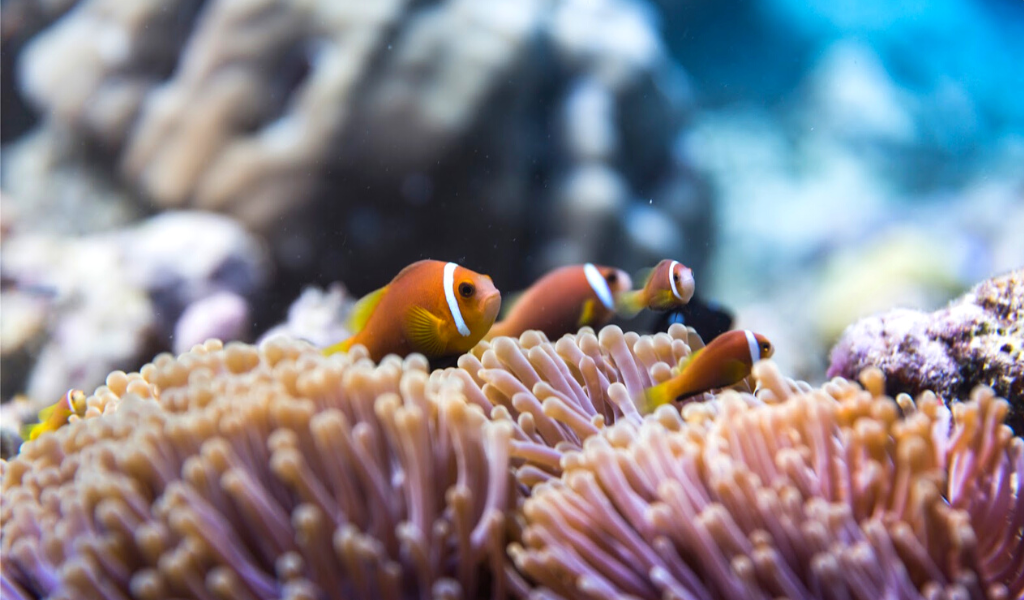
In order to preserve and safeguard the marine life near the resort, Diamond Resorts teamed up with the Bicocca University of Milan. Visitors can engage with marine biologists through their Coral Conservation Project and actively contribute to the conservation of corals by adopting a frame. It helps achieve the goal of protecting coral reefs and promoting responsible tourism.
Other resorts, like Sheraton Maldives Full Moon Resort and Spa, offer visitors the chance to adopt a frame and watch their corals develop over several months. The frames are designed and made on the nearby island of Baa Fulidhoo, giving the local population employment and the chance to develop their skills while also enhancing the eco-conservation project's sustainability.
[Cover Photo, Photos, Article Ref: Visit Maldives]